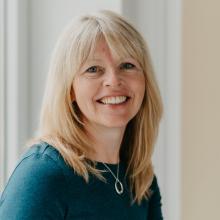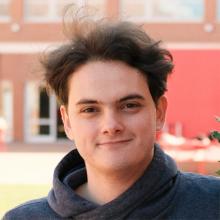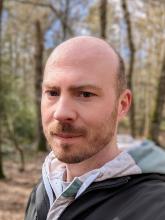You are viewing content from a past/completed conference.
Turbocharged Development: The Speed and Efficiency of WebAssembly
Abstract
The **software carbon intensity (SCI)** of an application is the sum of its operational emissions and embodied hardware emissions. Serverless, or functions as a service (FaaS), provides a path towards reducing operational emissions by running event-driven applications only as needed.
First generation serverless technologies however have a few limitations that make them cumbersome, slow, and inefficient. The first is that they're often based on Containers or microVM's - while both of these are faster than traditional virtualisation, they take seconds-to-tens-of-seconds to start, and often require pre-warming to be performant. The second is that the developer experience is often poor, with local development often being an afterthought, instead pushing developers to deploy software as part of their testing process.
This presentation discusses why Wasm is the greenest and most cross-platform unit of compute for serverless applications, how that translates to efficiency at scale, while still retaining an incredible developer experience and simple operations. It will include a demo of how you can get started using serverless Wasm with Spin, an open source developer tool and take an application from your laptop to the cloud with Kubernetes. By the end of the talk, you'll have an understanding of the characteristics that make Wasm a cost-effective and sustainable unit for a greener cloud - and how you can deliver on those results without sacrificing developer experience.
From the same track
Session
ebpf
Unleashing the Kernel With eBPF
Tuesday Apr 9 / 01:35PM BST
eBPF is a kernel technology that is enabling a new generation of high-performance, low-overhead tools for networking, security and observability.

Liz Rice
Chief Open Source Officer @Isovalent at Cisco, Ex-Governing Board at CNCF and OpenUK, Emeritus Chair, CNCF Technical Oversight Committee, eBPF, Security, Cilium, Cloud Native
Unleashing the Kernel With eBPF
Session
Quarkus
Zero Waste, Radical Magic, and Italian Graft – Quarkus Efficiency Secrets
Tuesday Apr 9 / 03:55PM BST
What makes a platform efficient? Is it how quickly code executes, or is it how quickly developers can use it to solve problems? Quarkus makes both people and hardware more efficient. That’s cool, but how does it work?

Holly Cummins
Full Stack Engineer, Building Quarkus @Red Hat, Former Lead Consultant
Zero Waste, Radical Magic, and Italian Graft – Quarkus Efficiency Secrets
Session
Rust
Not Just Memory Safety: How Rust Helps Maintain Efficient Software
Tuesday Apr 9 / 11:45AM BST
Rust's claim to fame is its memory safety without compromising on performance, eliminating whole classes of security vulnerabilities and bringing systems programming to the new generation.

Pietro Albini
Technical Lead of Ferrocene @Ferrous Systems, Formerly on the Rust Core Team, and Previous Lead of the Rust Infrastructure Team
Not Just Memory Safety: How Rust Helps Maintain Efficient Software
Session
high performance
What Can You Learn From the Fastest Code in the World?
Tuesday Apr 9 / 10:35AM BST
One of the challenges in the cloud is handling the vast amount of data that has to be sent and received. Doing this in software reduces the need for specialist hardware and increases flexibility.That's why superfast data planes exist.

Alan Elder
Principle Software Engineering Manager @Microsoft
What Can You Learn From the Fastest Code in the World?
Session
Unconference: Efficient Programming Languages
Tuesday Apr 9 / 02:45PM BST
An unconference is a participant-driven meeting. Attendees come together, bringing their challenges and relying on the experience and know-how of their peers for solutions.
Unconference: Efficient Programming Languages






